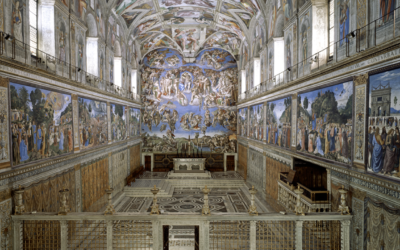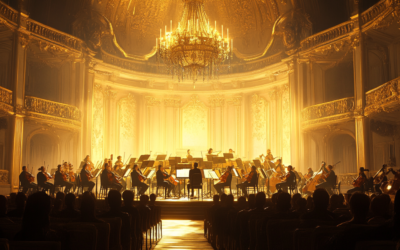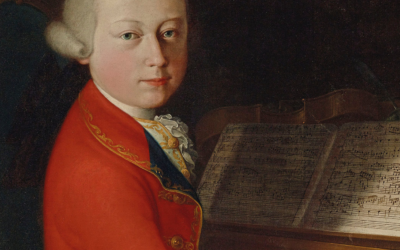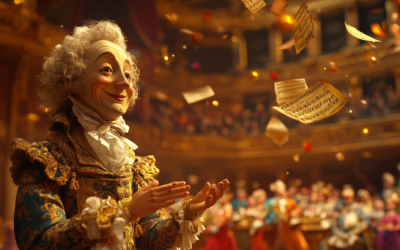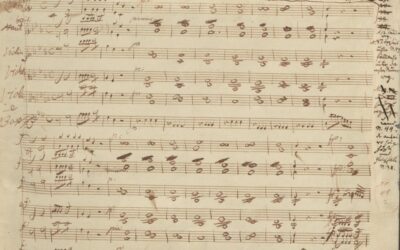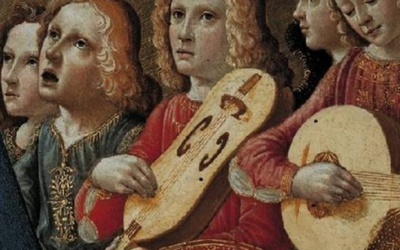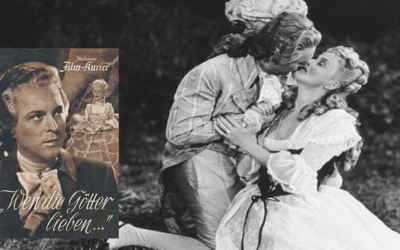Our Journal
Exploring the Evidence
The Legend of Mozart’s Miserere
The enduring popularity of the narrative surrounding Mozart’s Miserere highlights the allure of the prodigy myth, but as we peel back the layers, we uncover a more nuanced picture of his life and the musical landscape of the time. The reality often contrasts sharply with the romanticized tales that have shaped our understanding of his genius.
Rediscovering Musical Roots: The World Premiere of Gasparini and Mysliveček
This December, history will come alive as the Camerata Rousseau unveils forgotten treasures by Quirino Gasparini and Josef Mysliveček. These premieres not only celebrate their artistry but also reveal the untold influence of Gasparini on Mozart’s Mitridate re di Ponto. A pivotal event for anyone passionate about rediscovering music history.
The Curious Case of Mozart’s Phantom Sonata
In a striking case of artistic misattribution, the Musikwissenschaft has rediscovered Mozart through a portrait, attributing a dubious composition to him based solely on a score’s presence. One has to wonder: is this music really Mozart’s, or just a figment of our collective imagination?
The Illusion of Canonic Mastery
This post explores the simplistic nature of Mozart’s Kyrie K.89, revealing the truth behind his early canonic compositions and their implications on his perceived genius.
The Unveiling of Symphony K.16
The Symphony No. 1 in E-flat major, K.16, attributed to young Wolfgang Mozart, reveals the complex truth behind his early compositions. Far from the prodigious work of an eight-year-old, it is instead a product of substantial parental intervention and musical simplification.
The Cibavit eos and Mozart’s Deceptive Legacy
The Cibavit eos serves as a striking reminder that Mozart’s legacy may be built on shaky foundations, questioning the very essence of his so-called genius.
K.143: A Recitative and Aria in the Shadows of Doubt
K.143 is a prime example of how Mozart scholarship has turned uncertainty into myth. With no definitive evidence of authorship, date, or purpose, this uninspired recitative and aria in G major likely originated elsewhere. Is it time to admit this is not Mozart’s work at all?
The Enigma of Mozart’s Symphony K.73
The Symphony in C Major K.73 has long puzzled Mozart scholars. Touted as a youthful work of prodigious talent, its origins are murky at best. The title “Symphony,” inscribed on the first page of the autograph, is devoid of the composer’s name, casting immediate doubt on its attribution to Wolfgang Amadeus Mozart. Was this truly his work, or is the Symphony yet another victim of overzealous attribution?
A Legacy Rewritten by the Shadows of History
Mozart’s image, often regarded as a universal symbol of musical genius, was heavily manipulated by the Nazi regime, a fact largely ignored in post-war efforts to “denazify” German culture. From propaganda-driven films to anti-Semitic narratives, Mozart’s legacy is far more complex and troubling than we are often led to believe.

